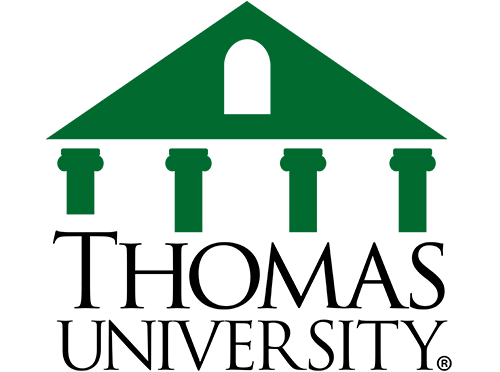Thomas University’s Master of Science in Counseling degree program is approved to offer students the opportunity to sit for their licensure (NCE/NCMHCE) exam and CRC exam after 75% of program coursework in completed.
The National Counselor Exam (NCE) and the National Clinical Mental Health Counseling Exam (NCMHCE) are offered twice a year, during the spring and fall semesters. Fieldwork faculty will work with students to help plan out the registration and application for exams within the final 3 semesters of the program. Students are required to determine which exam in required in the state in which they live and/or plan to practice. More information can be found at http://www.nbcc.org or by visiting your state’s professional licensure website.
The Certified Rehabilitation Counselor (CRC) Exam is offered three times a year during the spring, summer and fall. Students are encouraged to sit for this exam prior to program completion. For more information, visit Commission on Rehabilitation Counselor Certification (CRCC) website.
Students who pass their exams during program completion will graduate with their National Certified Counselor (NCC) and CRC already earned, improving marketability in the workforce.
Students pursuing their addiction credential will need to complete the required clinical training hours in the field prior to testing.
Students pursing certification as a Georgia school counselor must take and pass the GACE during program completion.
*Full licensure as an LPC/LMHC is not achieved until the student completes the required post-graduate supervised clinical hours in their state.
List of States where TU's Counseling degree meets state licensure requirements and state office contact information.
Certified Rehabilitation Counselor (CRC) Exam Pass Rates
| Exam Date | Graduates Sitting | Graduates Passing | Pass Rate | Students Sitting | Students Passing | Pass Rate |
| 10/2021 | 0 | 0 | 0 | 6 | 3 | 50% |
| 10/2020-7/2021 | 5 | 1 | 20% | 9 | 4 | 44% |
| 10/14/2019-7/31/2020 | 3 | 1 | 33% | 47 | 23 | 50% |
| 10/14/2018-7/31/2019 | 3 | 1 | 33% | 4 | 2 | 50% |
| 10/14/17-10/13/2018 | 7 | 2 | 39% | 8 | 5 | 63% |
| National Pass Rate | | | 40% | | | 58% |
National Counselor Exam (NCE) and National Clinical Mental Health Counselor Exam (NCMHC) Pass Rates
| Exam Date | Graduates Sitting | Graduates Passing | Pass Rate | Students Sitting | Students Passing | Pass Rate |
| Spring 2022 | 0 | 0 | 0 | 15 | 12 | 80% |
| Fall 2021 | 0 | 0 | 0 | 2 | 2 | 100% |
Spring 2021
| 0 | 0 | 0 | 9 | 8 | 91.4% |
Fall 2020
| 0 | 0 | 0 | 2 | 2 | 100% |
Spring 2020
| 0 | 0 | 0 | 1 | 1 | 100% |
| | | | | | |
- Thomas University's Master of Science in Clinical Mental Health and Clinical Rehabilitation Counseling is CACREP accredited until 2023. The accreditation of this dual program designation expires in October 2023.
- Thomas University is currently undergoing the self-study process for CACREP accreditation reaffirmation for its newly designed Master of Science in Counseling with specializations in 1) Clinical Mental Health Counseling, 2) Clinical Rehabilitation Counseling, 3) Addiction Counseling and 4) School Counseling.
- All four specialization tracks lead to licensure as a professional counselor.
- CACREP accreditation is renewed on an 8-year cycle.
- The employment rate of Thomas University's Counseling 2021-2022 graduates is 100%
- The Average time to complete the 60--credit hour program is as follows:
- Full-time (9 credit hours per semester) 2.3 year (7 semesters)
- Part-time (6 credit hours per semester) 3.3 years (10 semesters)
| Academic Year | Enrollment
(fall semester) | Graduates | Retention |
| 2023-24 | 147 | 32 | 98% |
| 2022-23 | 179 | 55 | 98% |
| 2021-22 | 180 | 48 | 99% |
| 2020-21 | 159 | 31 | 89% |
| 2019-20 | 119 | 25 | 95% |
BHWET Grant
Behavioral Health Workforce Education and Training (BHWET) Program: Preparing students for the demands of vulnerable populations with unmet behavioral health needs.
The Thomas University Division of Social and Behavioral Sciences, Master of Science in Counseling (MSC), has received a grant from the Health Resources and Services Administration (HRSA), U.S. Department of Health and Human Services. The BHWET Program for Professionals grant will further advance and expand the behavioral health workforce by preparing students in master's level clinical counseling programs for professional clinical practice in integrated behavioral health and collaborative team settings.
With commitment to vulnerable populations, TU’s Master of Science in Counseling BHWET grant recipients will be trained to meet the specific and unique needs of persons living in medically underserved rural and urban communities. Student placements will be focused on providing effective behavioral health treatment modalities at interprofessional and team-based care field placement sites or ones that are working toward, or have instituted the integration of interdisciplinary teams.
For students who are starting their Fieldwork Practicum:
- Students must be willing to commit 100 clinical hours/semester to an integrated health setting. If students are beginning or receiving BHWET funds in Internship I and/or Internship II, they must be willing to commit 450 clinical hours/semester to an approved integrated health setting.
- Practicum and Internship stipend provided
- Specialized training in integrated behavioral health at no cost
Requirements:
- Fieldwork setting targeting behavioral health in sites that qualify as medically underserved or experiencing a health care professional shortage, as per HRSA’s definition
- Commitment to training and networking activities
- Full Fieldwork (RCE 680, RCE 681, & RCE 682) commitment
- Agreement with and signature on the BHWET commitment letter
For additional information, contact Candace Strickland, BHWET Coordinator.
RSA Grant
Thomas University's Rehabilitation Services Administration (RSA) Grant enables scholarships for graduate students with a strong desire to serve persons with disabilities and have an undergraduate GPA of 3.0 or higher. For more information regarding the RSA Scholarship, please contact Don Lewis, Dr. Cristina Jones or Pauline Patrick.
Rho Chi Sigma Honor Society Grant
This grant is for an incoming Masters of Science in Counseling students each Spring Semester. A student is nominated by a faculty member, and an officer of Rho Chi Sigma in the Fall Semester, and the chosen student is awarded the grant at the yearly induction ceremony. Students who show school spirit, a willingness to serve others, and a dedication for advocacy are the key elements sought when nominated. Funds vary from year to year but range from $200-$500 per year.
Graduate Assistantship
- Applicants must be accepted and in good standing as a student in the graduate program supporting the assistantship.
- Work Hours in Exchange for Tuition:
- 15 hours for 15 weeks (one semester) -- 225 total hours for 9 credits’ tuition remission
- 8 hours for 15 weeks (one semester) – 120 total hours for 5 credits’ tuition remission
Application Process
- Applicants must complete the Graduate Assistantship Application by each semester deadline – November 15 (for spring) and July 15 (for fall).
- Applicants submit application to Financial Aid who will forward all applications to the graduate program division chair for his/her selection for each semester. The selected student is subject to a criminal background check.
Graduate assistants may receive the assistantship a maximum of two semesters.
Graduate Assistantship Duties
- Assistantship positions are designed to provide the student with a meaningful work experience in the field of study while enabling and/or supporting a division project or initiative. Duties and responsibilities are described in assistantship position descriptions posted each semester.
- The division chair or a designated faculty member designated is responsible for supervising the graduate assistant.
- Supervision is aided by required submission of a task list and work hours log given to the supervisor by the end of each month of the semester.
- The supervisor will complete a mid-term evaluation to ensure that the graduate assistant is meeting the assignment objectives, as well as an end-of-semester evaluation providing summative documentation of the work accomplished, its quality, and timeliness.


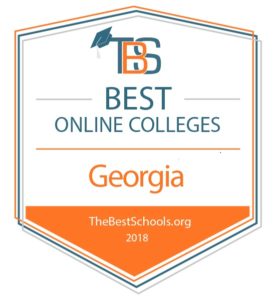
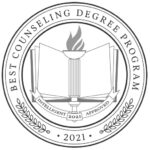
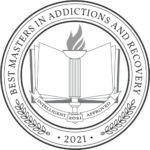
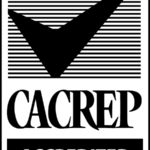
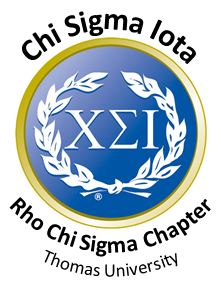 CSI is an international honor society that values academic and professional excellence in counseling. By promoting a strong professional identity through members (professional counselors, counselor educators, and students), CSI contributes to the realization of a healthy society by fostering wellness and human dignity.
CSI is an international honor society that values academic and professional excellence in counseling. By promoting a strong professional identity through members (professional counselors, counselor educators, and students), CSI contributes to the realization of a healthy society by fostering wellness and human dignity.